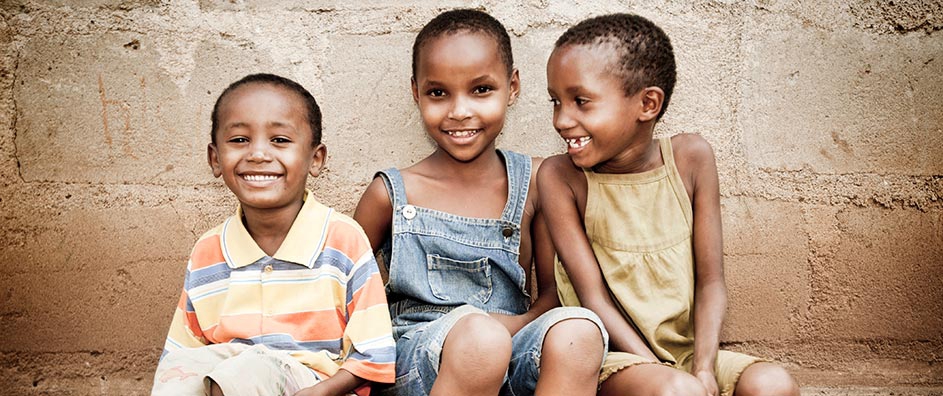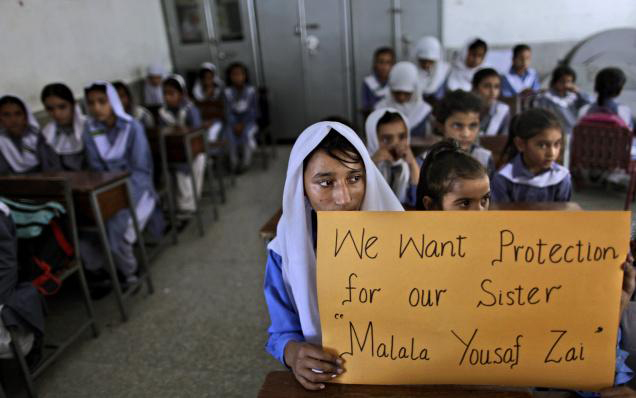The views expressed in our content reflect individual perspectives and do not represent the authoritative views of the Baha'i Faith.
Today, most of the people in the world would probably agree with this important Baha’i principle:
Baha’u’llah has announced that inasmuch as ignorance and lack of education are barriers of separation among mankind, all must receive training and instruction. Through this provision the lack of mutual understanding will be remedied and the unity of mankind furthered and advanced. Universal education is a universal law. – Abdu’l-Baha, The Promulgation of Universal Peace, p. 300.
…there must be education and freedom for all the sons and daughters of mother earth. – Abdu’l-Baha, Star of the West, Volume 6, p. 297.
The idea of universal compulsory education and the freedom to learn for both genders still has a few virulent opponents, like the Taliban in Afghanistan. But for the most part, this Baha’i principle has now reached near-universal acceptance. The vast majority of the world’s parents agree that education will benefit their children, both boys and girls—and that educated children will benefit the world.
And yet, strangely, some people still resist giving children any knowledge of other religions.
I have a good friend who runs a publishing company in the United States, and several years ago he published an introductory book on Islam. Few people noticed until one of America’s southern states decided to require all its first-year university students to take an introductory course on comparative religions—and included his book on Islam as one of the required texts.
The controversy blew up immediately. Parents and even some students reacted angrily, saying that the university system had no right to insist they learn about what they called “a foreign religion.” Many fundamentalist families threatened to sue, or withdraw their college students from the university system. Demonstrations, shouting matches and screaming talk-show hosts ensued.
But the university ultimately settled everyone down with a few good responses to the brouhaha: In this era of clashing religious ideologies, and the wars that result, doesn’t everyone think it would be wise to learn a little about the world’s other Faiths? And isn’t it the responsibility of the educational system to educate us about things we don’t already know? And if education about other ideas and belief systems could reduce misunderstanding and conflict, wouldn’t that be a good thing?
When I heard the university’s responses, I was proud of the people who advocate for and educate toward the ideal of a diverse, pluralistic society. Their responses reminded me of a comment Abdu’l-Baha made to a Cleveland, Ohio newspaper reporter who asked him to describe his mission:
My purpose and intention is to remove from the hearts of men the religious enmity and hatred which have fettered them and to bring all religions into agreement and unity. Inasmuch as this hatred and enmity, this bigotry and intolerance are outcomes of misunderstandings, the reality of religious unity will appear when these misunderstandings are dispelled. For the foundation of the divine religions is one foundation. This is the oneness of revelation or teaching; but alas! we have turned away from that foundation, holding tenaciously to various dogmatic forms and blind imitation of ancestral beliefs. This is the real cause of enmity, hatred and bloodshed in the world; the reason of alienation and estrangement among mankind. – Abdu’l-Baha, Foundations of World Unity, p. 96.
That powerful quote encapsulates the third principle Baha’is recommend for stopping religious conflict:
3. Educate Everyone—Early–about Everyone’s Religion
In much of the western world, the doctrine of the separation of church and state has led us to believe that we can’t even mention religion in a public school. On the opposite end of the spectrum, some of the world’s countries still base the entire education of their children on a single religious framework; and dogmatically prohibit discussion of other ideas and traditions. Baha’is favor a moderate middle way, which includes instruction in the diverse spectrum of religious beliefs, but allows every student a broad base of knowledge that does not prescribe adherence to any particular belief system or restrict any student’s independent investigation of truth.
Most would agree that no public school should impose one set of religious beliefs on its students—that’s the main reason why the United States Supreme Court, for example, has banned prayer in schools; and why many European, African and Asian nations have made religious education optional rather than mandatory. They’ve realized that we can begin educating students about the teachings of religions if we do it in a neutral, scholarly way, without promoting any particular religion.
That objective approach occurs today in many colleges and universities when they offer courses in religious studies. However, we form our ideas and our prejudices much sooner than that, often adopting ill-informed misunderstandings about religion early in life. If we universally taught young children the basic teachings of the world’s major Faiths in their primary or secondary school curricula, it could have a major impact, in just a generation, on reducing religious conflict in the world. The Baha’i teachings address that positive potential by calling for a universal global curriculum of study, the same for both girls and boys, which would help establish a common framework for understanding around the world:
…education is essential, and all standards of training and teaching throughout the world of mankind should be brought into conformity and agreement; a universal curriculum should be established, and the basis of ethics be the same. – Abdu’l-Baha, The Promulgation of Universal Peace, p. 182.
Daughters and sons must follow the same curriculum of study, thereby promoting unity of the sexes. – Abdu’l-Baha, The Promulgation of Universal Peace, p. 175.
Baha’is believe that a concerted effort at ethical education about the wide variety of human belief will help the world better address faith-based conflicts and bring them to peaceful resolution. When children learn about the world’s religions, it can lower the barriers that separate and divide humanity.
You May Also Like
Comments


















As always I salute your work and I totally agree that we need to educate all the children about all the religions and let them see the truth of how similar they really are and that is why I created Any Body Can Disciple Everything From God
@ http://www.abcdefg.co/spirituality.html and want to share it with the world.
Love,
Sridattadev.